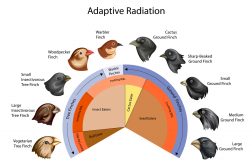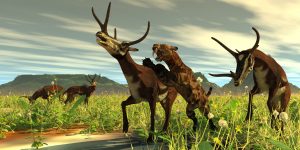Definition
noun
A kind of evolution that involves evolutionary changes that are adaptive to a particular environment
Supplement
Evolution refers to the processes and events that take place over time illustrating the gradual progression of changes in the genetic composition of a biological population over successive generations. It is presumed that life on earth came from a common ancestor. This common ancestor is referred to as the last universal common ancestor. From this ancestor, organisms underwent further evolutionary changes, giving rise to multifarious organisms with distinctive traits fit to their environment and survival. Evolution occurs due to genetic variation. Two major mechanisms that drive evolution are natural selection and genetic drift. In natural selection, individuals with advantageous traits are able to reproduce successfully. These traits are passed down to the next generations. This type of evolution wherein the changes are driven by natural selection is called adaptive evolution.
Adaptive evolution pertains to evolutionary changes in an organism that make it suitable to its habitat. The changes result in an increased chance of survival and reproduction. The changes enable the particular organism to fit to an environment. The changes are the organism’s adaptive traits and they arise as a result of natural selection. An example of adaptive evolution is the horse’s teeth. Its teeth are one of the traits that made it fit for a grass diet.
In contrast, genetic drift produces random changes in the frequency of traits in a population. Evolution that arises from genetic drift is called neutral evolution.
See also:
Dictionary > Adaptive evolution






